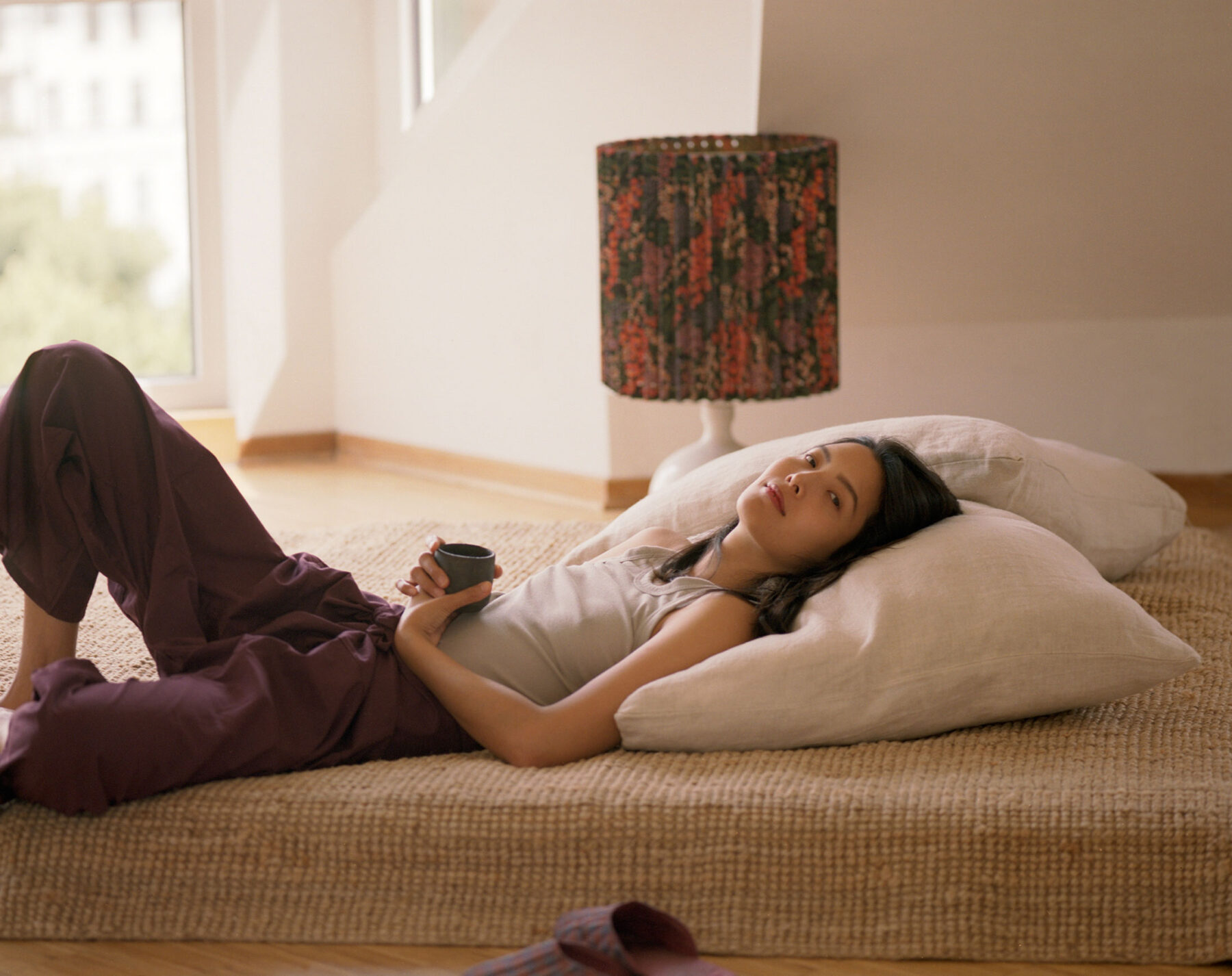The head chef of contemporary Thai restaurant Kin Dee populates her menu with seasonal ingredients drawn directly from nature, prioritising authentic flavors and sustainable processes over artificial aesthetics.
Fresh-faced, wearing loose-fitting clothing and practical footwear, chef Dalad Kambhu picks her way through the uneven stone surfaces of Berlin’s Gleisdreieck Park as she searches for edible flora on her weekly forage. She’s looking for her favorite, seasonal flowers: pink, edible sweet peas that are currently adorning a sugar snap bean and pea salad dish on her restaurant’s menu. “I knew that it is possible to eat flowers, but it wasn’t until my sous chef introduced me to inner city foraging that I found out it was so easy to just go into a nearby park and find plants to use in your food. It’s so amazing,” she says, her evident passion for sourcing ingredients from nature mirroring Dr Hauschka’s commitment to using plants from their own biodynamic medicinal herb garden in their cosmetics. Keeping a keen eye out for any sign of plant life nearby, she adds that “it’s also really fun to forage in the forest”, reminiscing about finding wild mushrooms on a trip an hour and a half outside of Berlin.
Born in Austin, Texas and raised in Bangkok in a family passionate about cooking, Kambhu lived and worked in New York through her twenties. Initially studying and modelling while also working in restaurants across NYC, she later made a permanent move into the kitchen despite never having received any formal training. Relying on her natural instincts—as well as a brief stint cooking under her aunt’s tutelage in Paris—Kambhu is now the head chef of contemporary Thai restaurant Kin Dee. Opening in 2016, the Berlin eatery is a joint venture with her mentor, the renowned visual artist and food enthusiast Rikrit Tiravanija. After only three years of operation, Kambhu received her first Michelin star, making her one of only ten female chefs in Germany to share this honor.
This interview is part of Let Nature In, a content series produced in collaboration with organic skincare brand Dr. Hauschka. Showcasing inspiring female creatives for whom the beauty of nature is intrinsic to their practice, the series also features portraits on British multi-disciplinary artist Alexandra Daisy Ginsberg and Barcelona-based creative Tana Latorre.
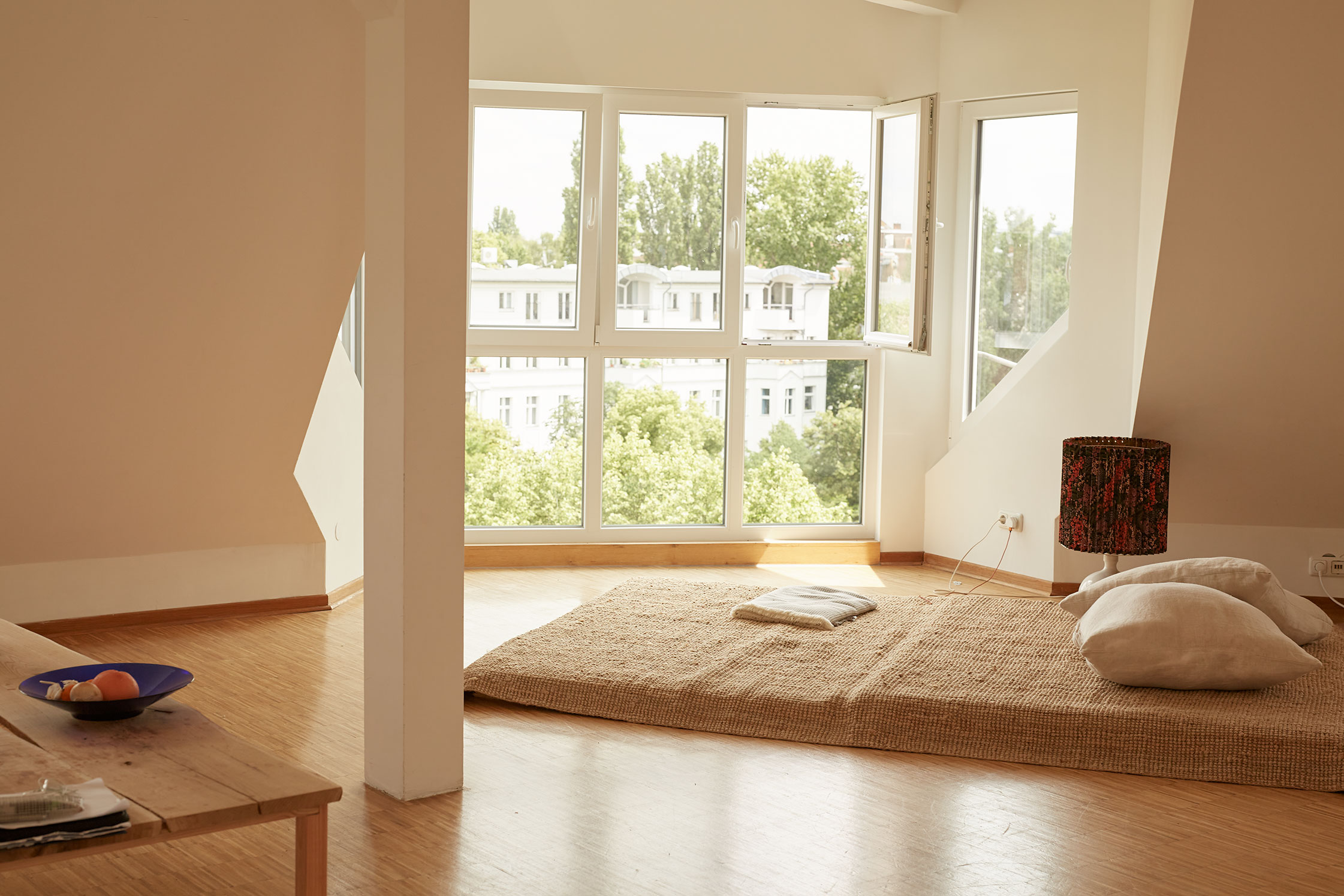
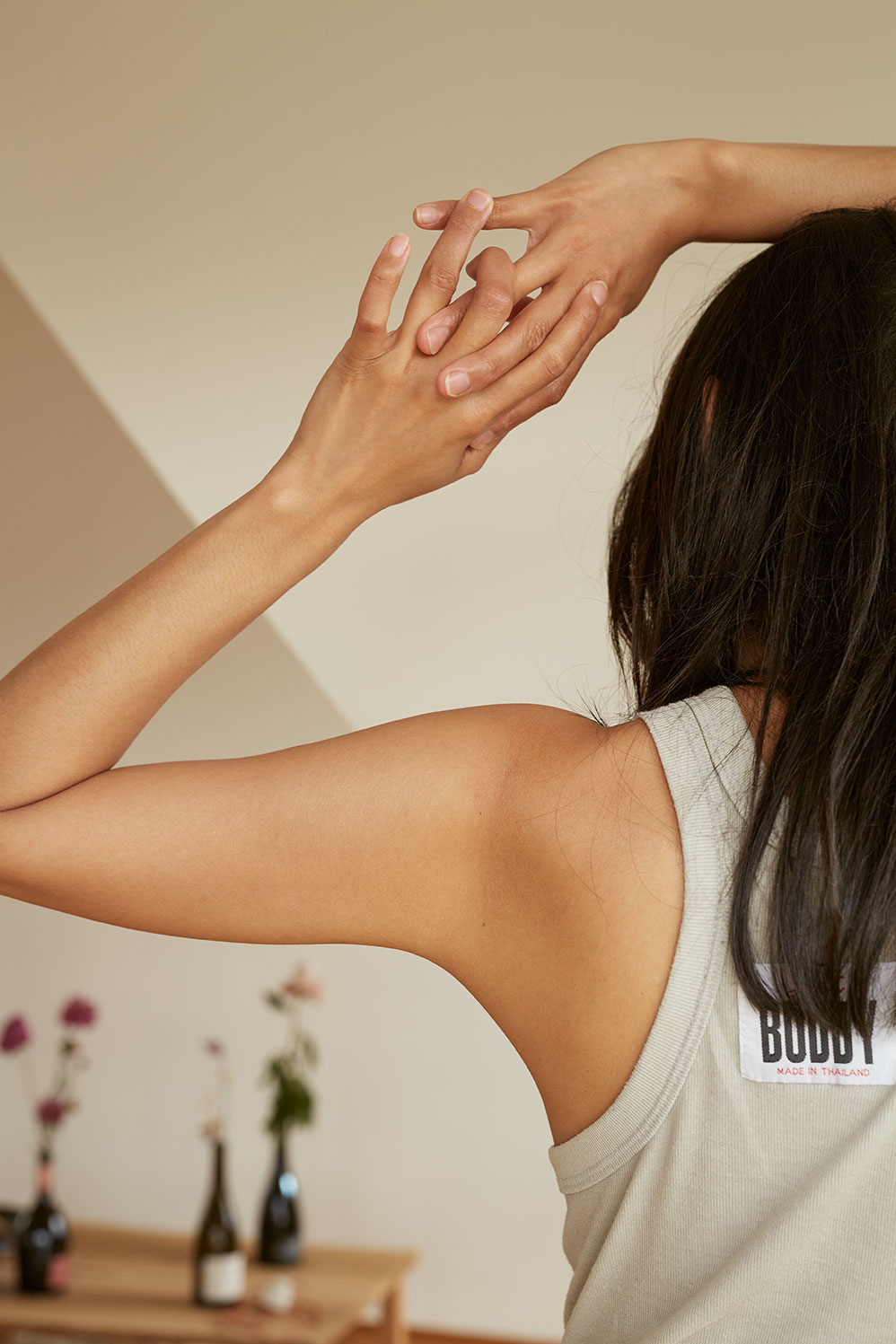
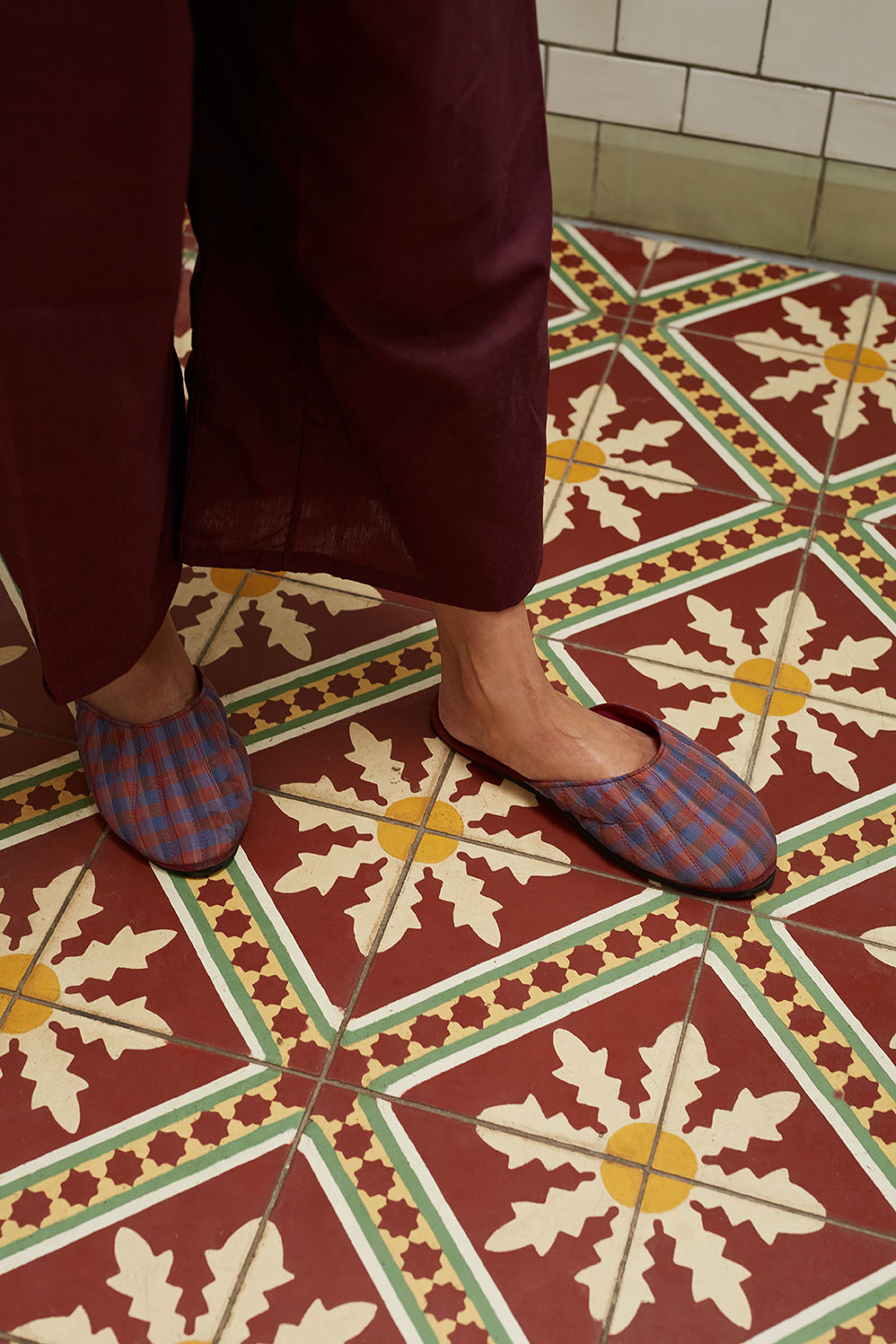
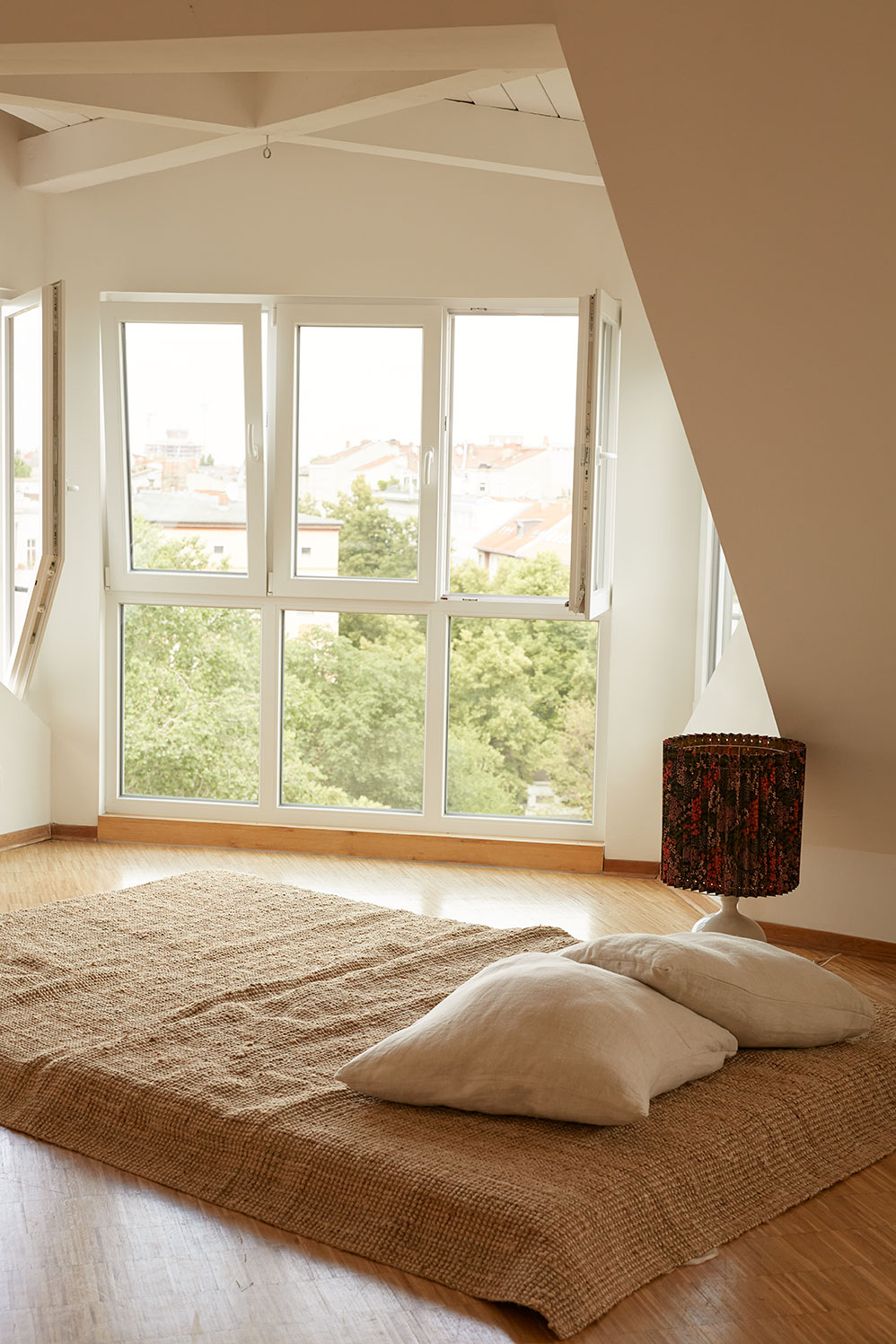
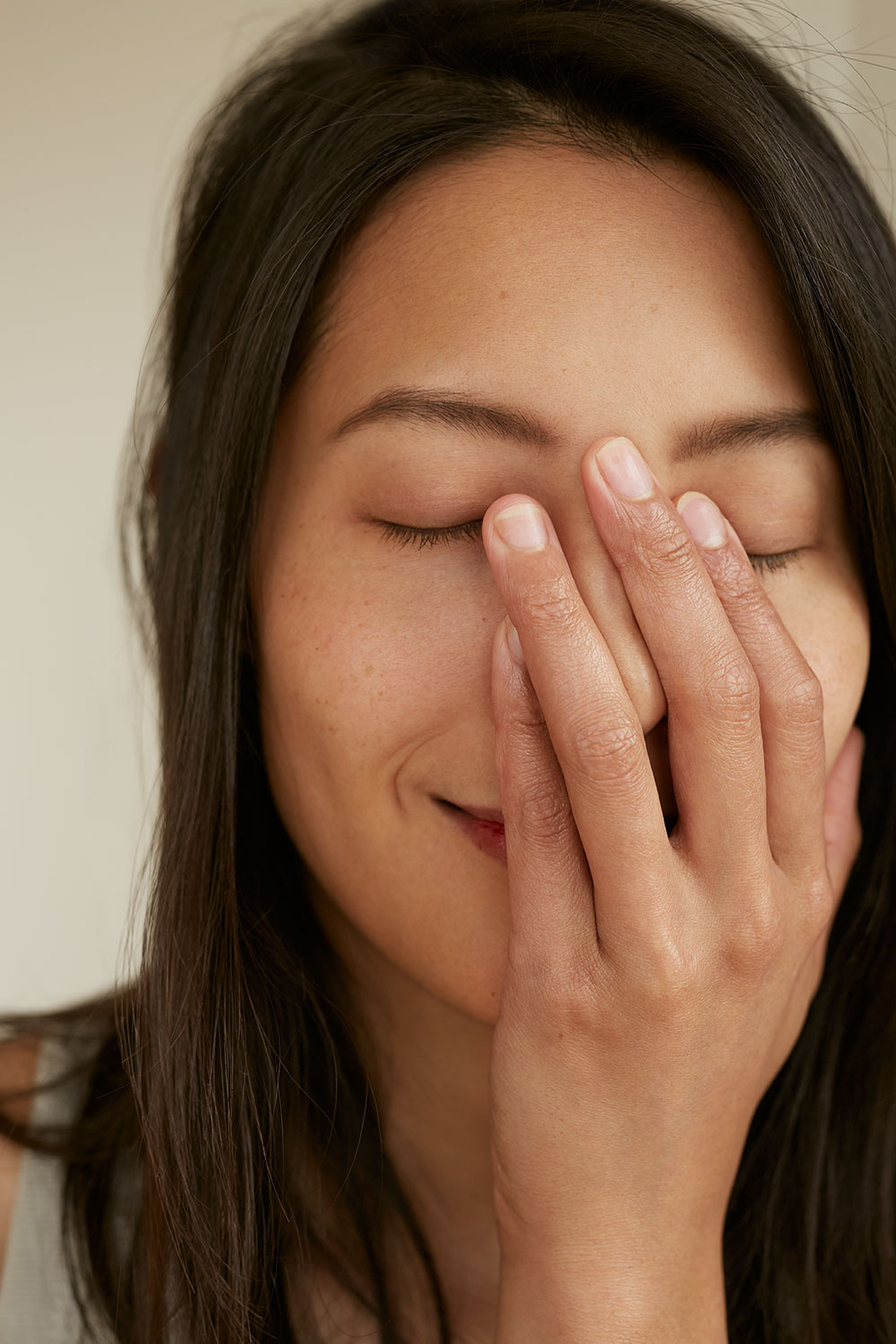
Kambhu is quick to speak up about the difficulties of being a woman in the male dominated food industry, saying that “when we started Kin Dee I was leading an all-male team and it was pretty stressful, especially because I don’t like leading people by screaming and inciting fear.” After being invited to give some talks about her profession at various events around Berlin, she was approached by other female chefs who had similar experiences, one of whom was getting increasing numbers of inappropriate comments from her male colleagues. “This is the reason we don’t have many women chefs as role models: the traditional, professional kitchen environment is not female-friendly,” says Kambhu, explaining that she was so angry that she asked the woman to come and work with her at Kin Dee instead. Since then, more and more women have started to work at the restaurant, which now boasts an all-female team. “It’s so chill. There’s no stress, no freak outs, or testosterone. Now we’re all women again it’s really fun.”
Daily Beauty Rituals: Herbal Teas and Infusions
-
- 1 “Every morning, as soon as I wake up, I boil hot water, take a look at my plants and drink herbal tea or an infusion.”
- 2 “I stopped drinking coffee around six months ago for health reasons, and a friend told me that I should drink more tea instead. I always grew up drinking black tea with milk, so drinking infusions is a new thing for me. But now I’m quite into it.
- 3 “My favourite places to buy teas are Paper and Tea,”—a Berlin-based company working to create a stronger market awareness for good tea and a modern tea culture—“and Mariage Frères, a French gourmet tea company, based in Paris.”
- 4 “My favourite flavors include a caffeine-free organic tea with cleansing Ayurvedic herbs and spices, and another with lemon and verbena leaves. The first one helps me to wake up without relying on caffeine, and the other is a perfect, mellow, after-dinner tea.”
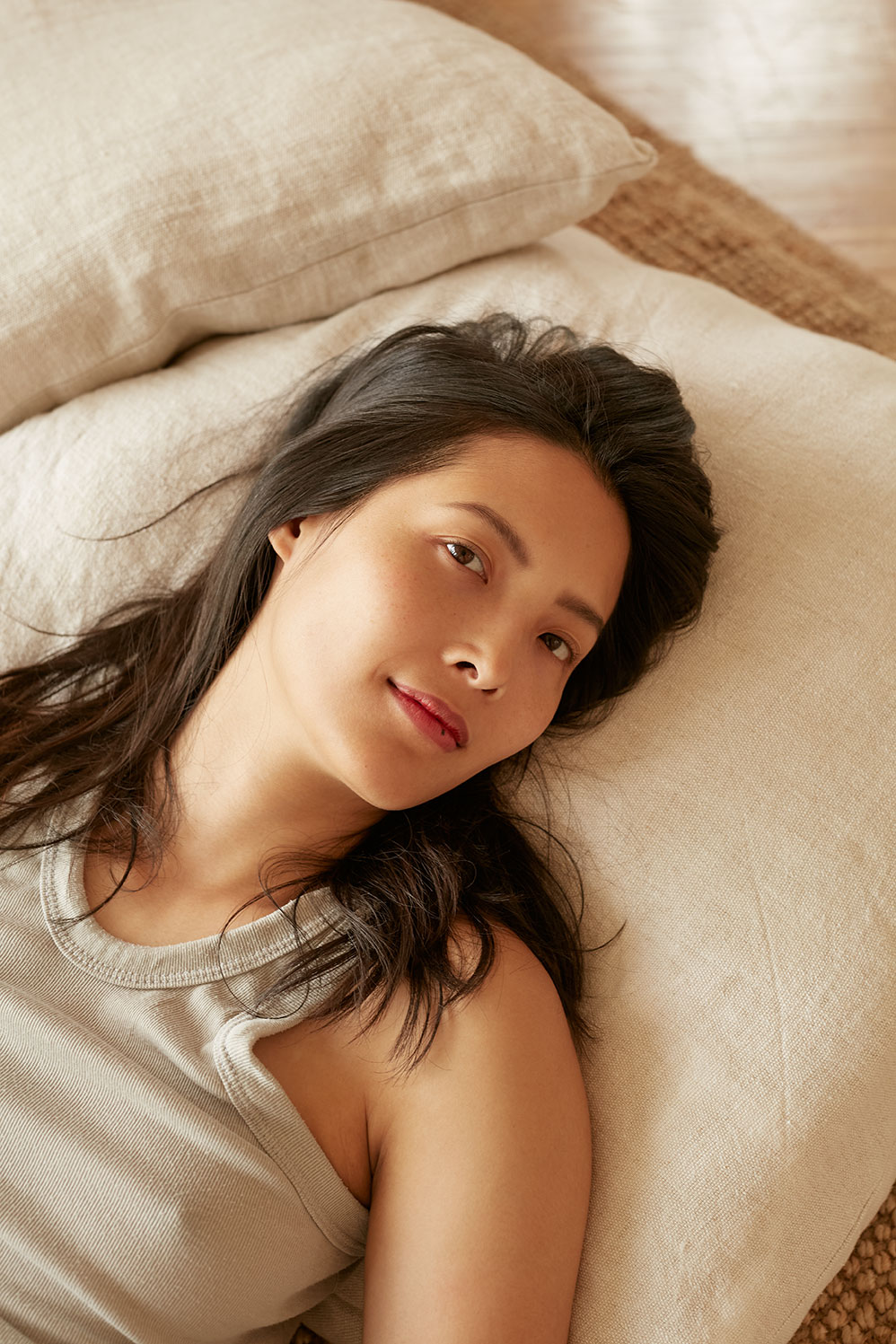
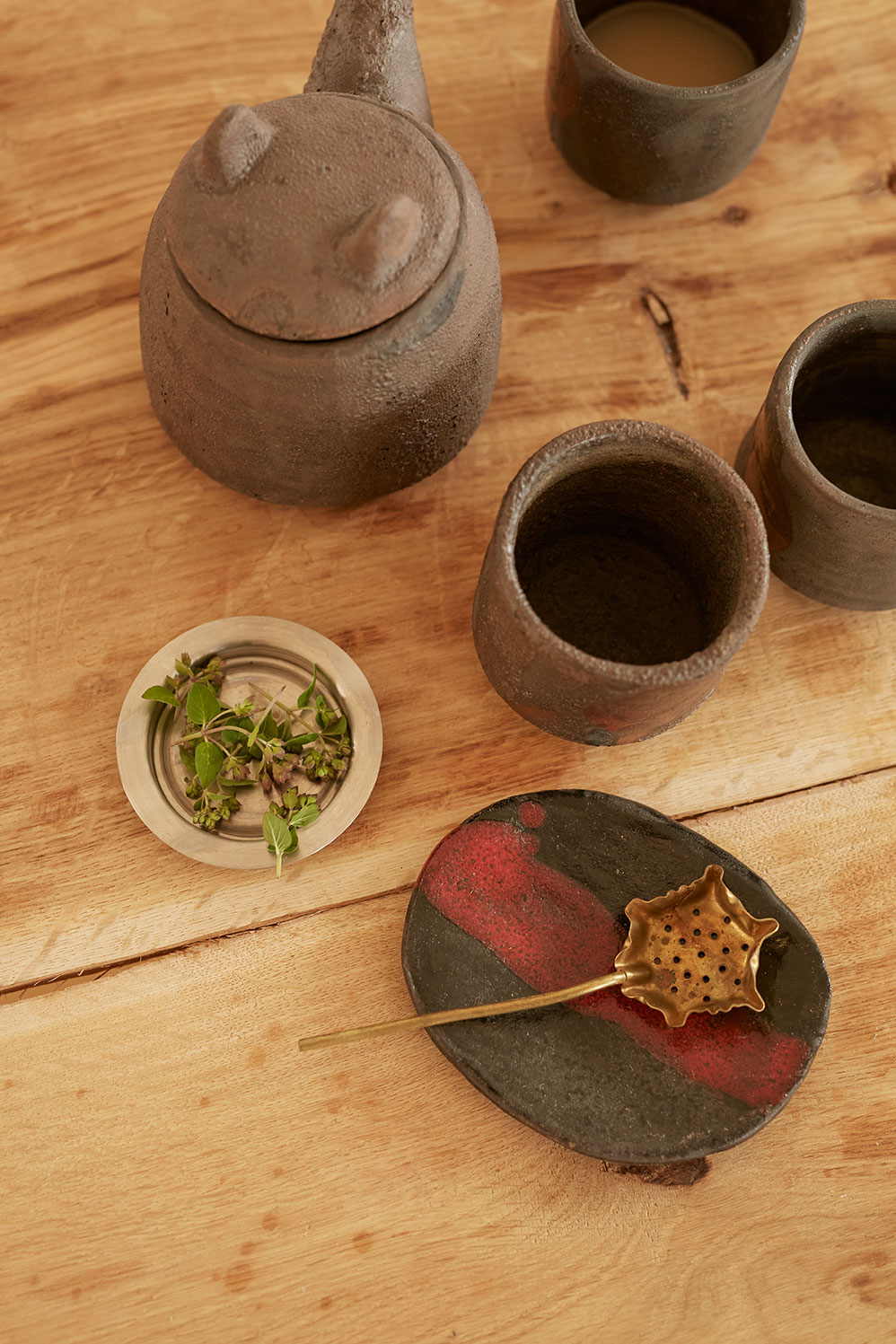
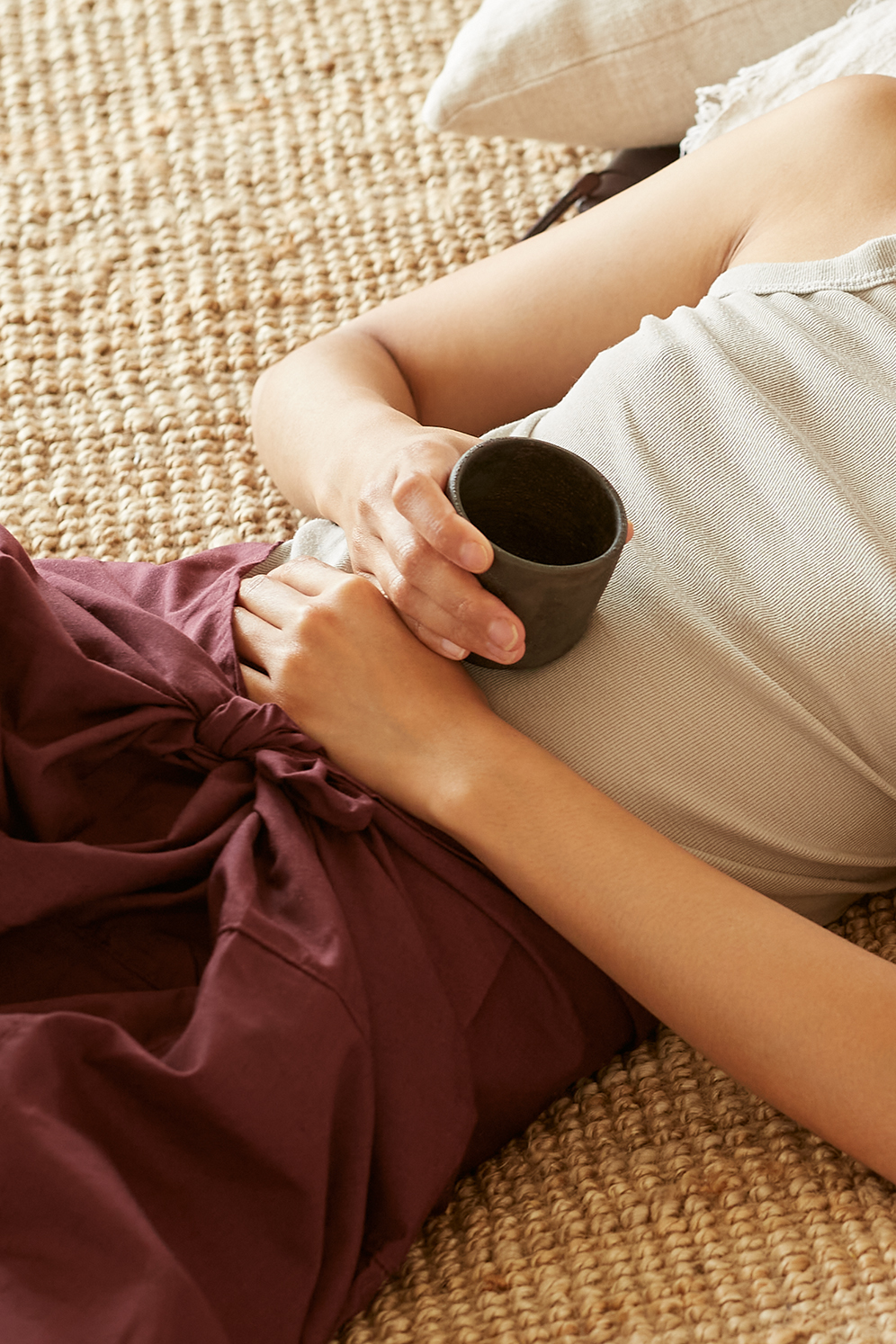
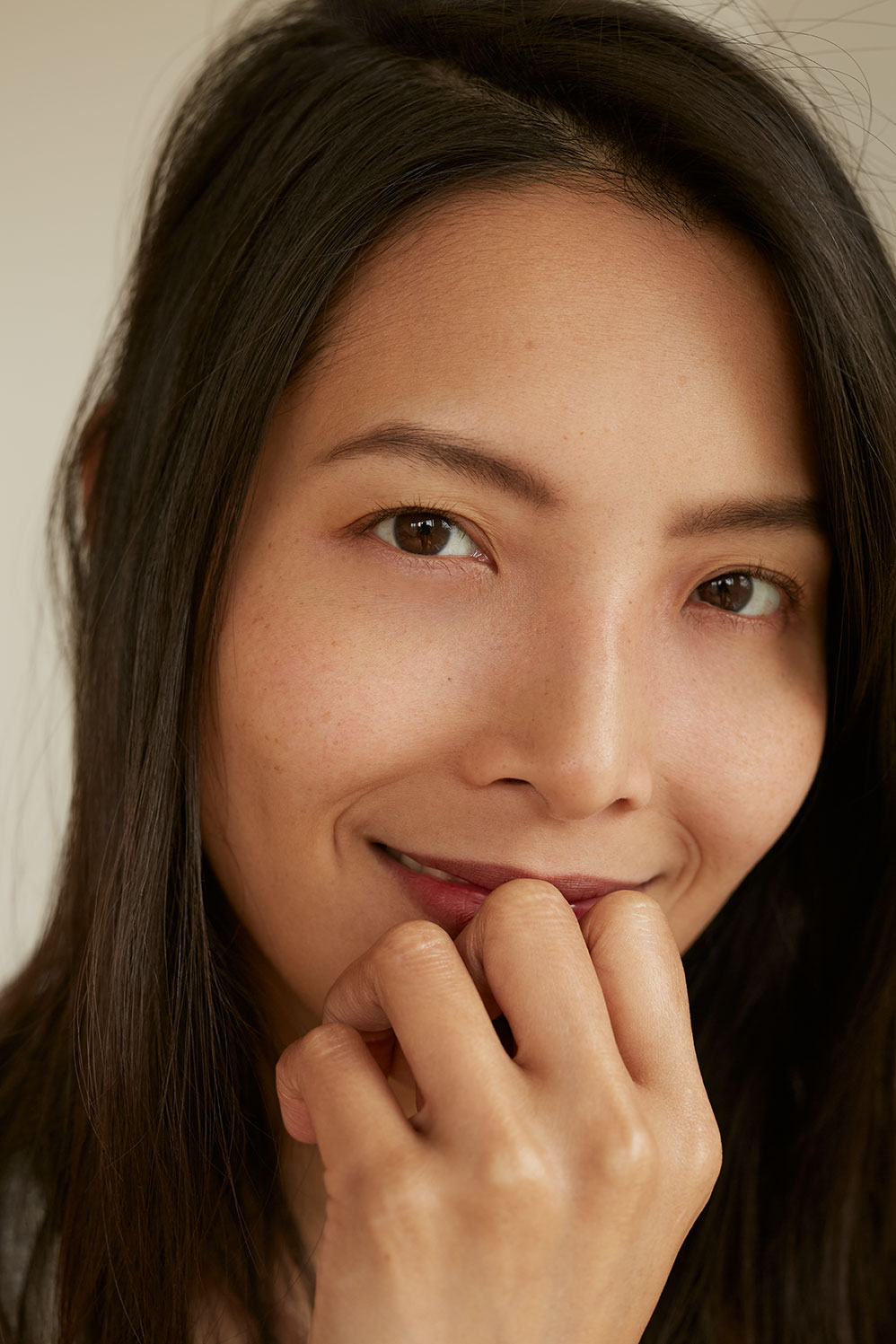
Kambhu has an air of quiet confidence about her, her emphasis on observing self-acceptance and care over conforming to traditional beauty standards reflecting Dr. Hauschka’s belief that caring for yourself and finding inner balance manifests in a beautiful outward appearance. But, apparently, Kambhu hasn’t always been as assured as she is today. “There’s a big difference between my younger self and my present self. I feel like I’m more wise now,” she says. “When I was younger I cared a lot about how I looked and what people thought about me. Now I’m older and somewhat accomplished in my career, I feel like I can be my own person.” Kambhu also notes that her perception of beauty changed a lot when she stopped modelling and started working in an environment where practicality and comfort—she told Vogue Germany in 2018 that she wears Nike running leggings under her chef whites—outweigh style and aesthetics. “For me beauty has become much more about confidence, knowing what I want, and not being afraid to go for it.”
This natural, laid-back approach to personal appearance is also reflected in the presentation of Kambhu’s food. Served on beautiful pastel and earthen-colored tableware handmade by local ceramicist Lisa Kosack, the dishes at Kin Dee are almost like minimalist artworks in themselves. But while these meals may appear perfectly placed with a fine attention to detail, Kambhu insists that they are not overly-engineered, and that when it comes to presentation, Kin Dee prizes organicity over pernickety precision. “I’m very lucky to work with a team that knows how to find beauty in natural ingredients and doesn’t try to force them to be something they’re not,” she says, referring to the fact that, when cooking, she and her fellow chefs often try to cut food according to its natural form. “For so long, a lot of hospitality has been about cutting things perfectly and making them into unnatural shapes like squares and circles. It’s not an authentic way of presenting food. If a fish was square, it couldn’t swim. So why would we cut it like that?”
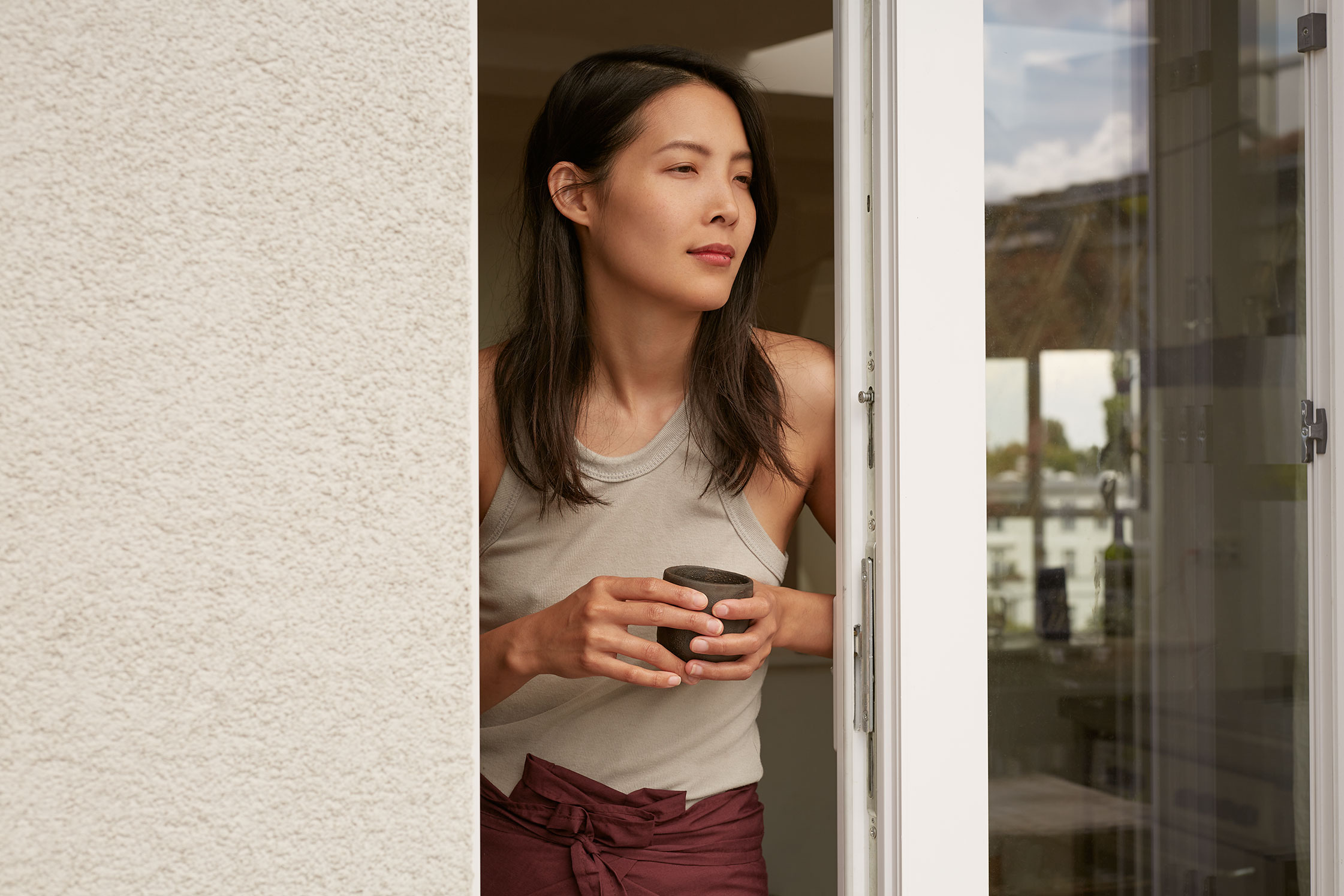
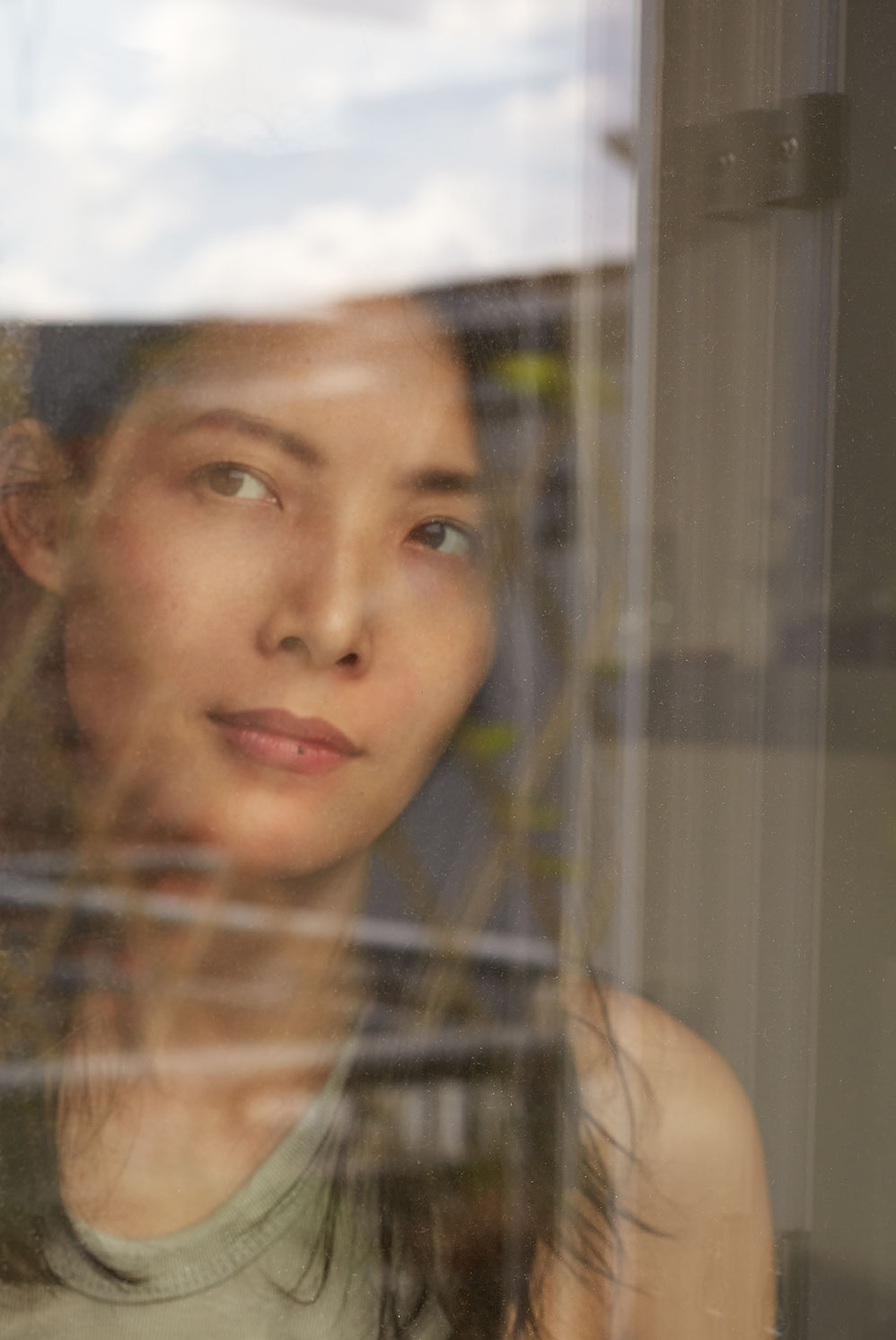
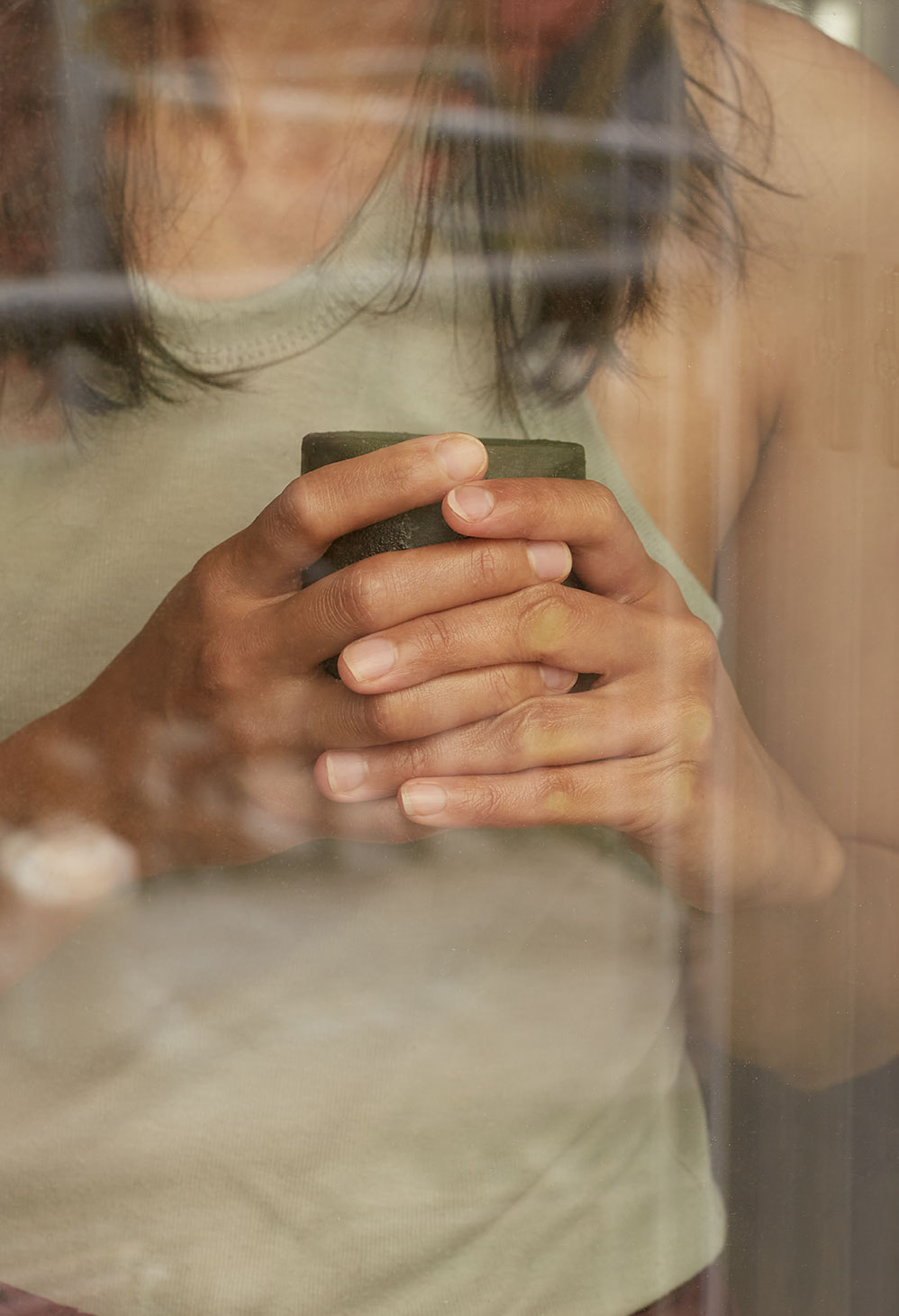
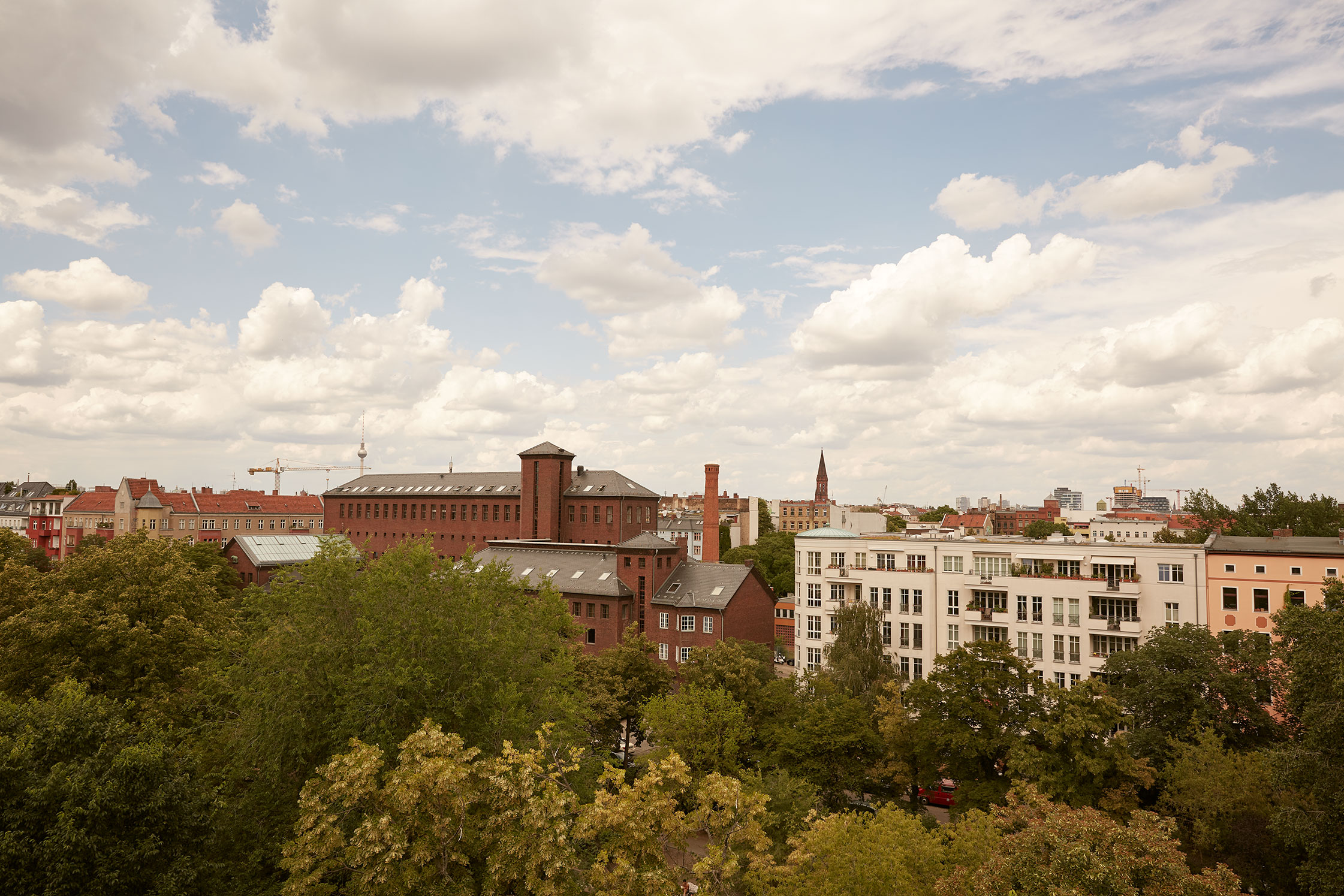
“For me beauty has become much more about confidence, knowing what I want, and not being afraid to go for it.”
This being said, sustainability, and seasonality, not aesthetics, are the driving factors behind Kin Dee’s ever-changing menu, which Kambhu hopes will inspire people to be more thoughtful about what they eat, when they eat it, and where it comes from. Buying the majority of her ingredients locally from Kreuzberg’s Markthalle Neun food market—aside from ingredients that she can only get from Thailand—Kambhu believes that conscious cooking is not only better for the environment, but also her customers’ taste buds. “This way, you get the most fresh and delicious produce,” she says.
Pointing to an array of green, yellow, and purple foliage alongside the path, Kambhu explains that “all of this is edible,” but due to being so close to the walkway, and a wall covered in graffiti, she does not pick them in case they’ve been polluted by spray paint. It seems like a very “Berlin” problem, as in the German capital it is not unusual for the natural world and urban life to collide. The chef’s chosen foraging location of Gleisdreieck Park—a former railway area that is now an urban oasis, the old train tracks still intersecting the park’s green spaces—is case in point.
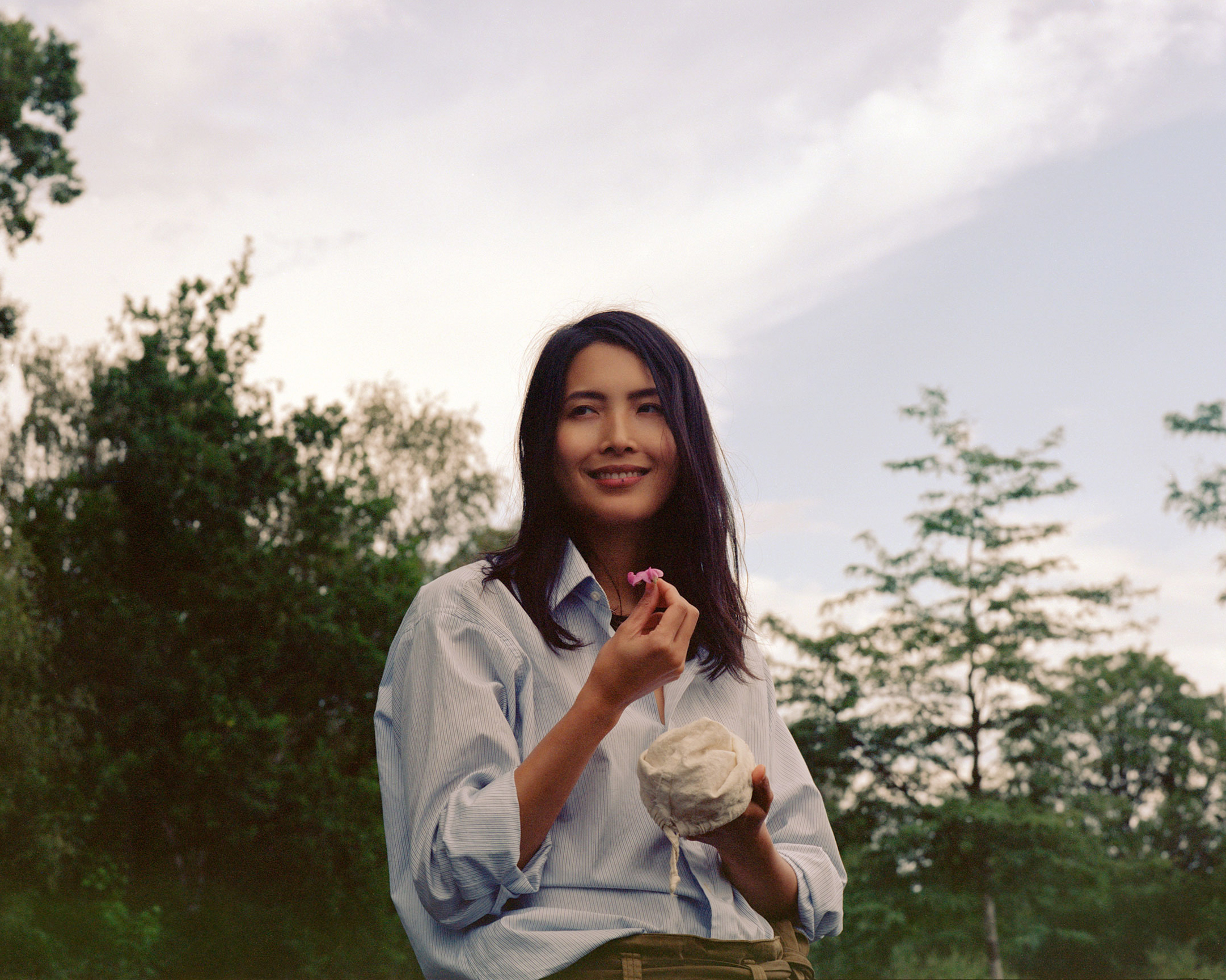
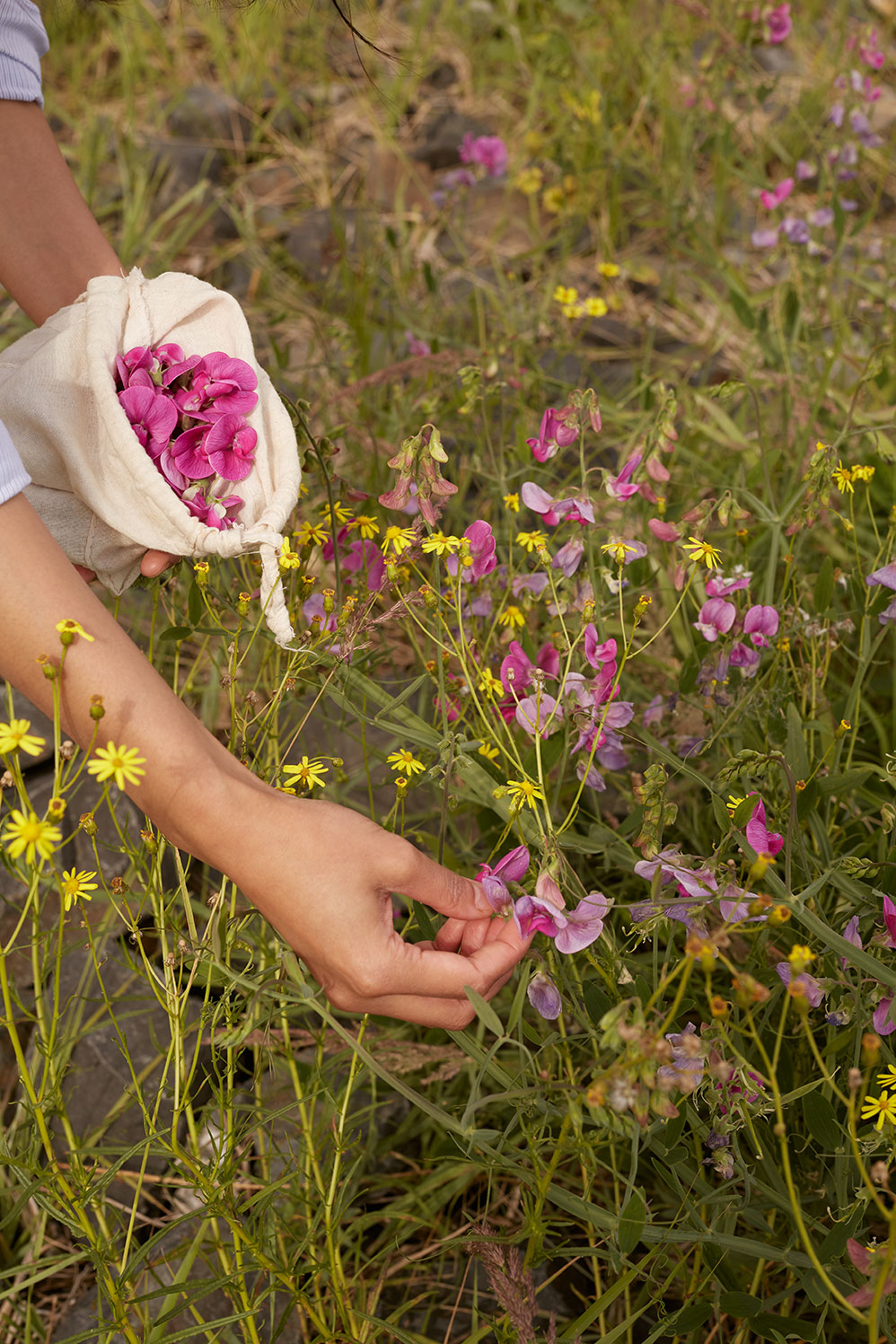
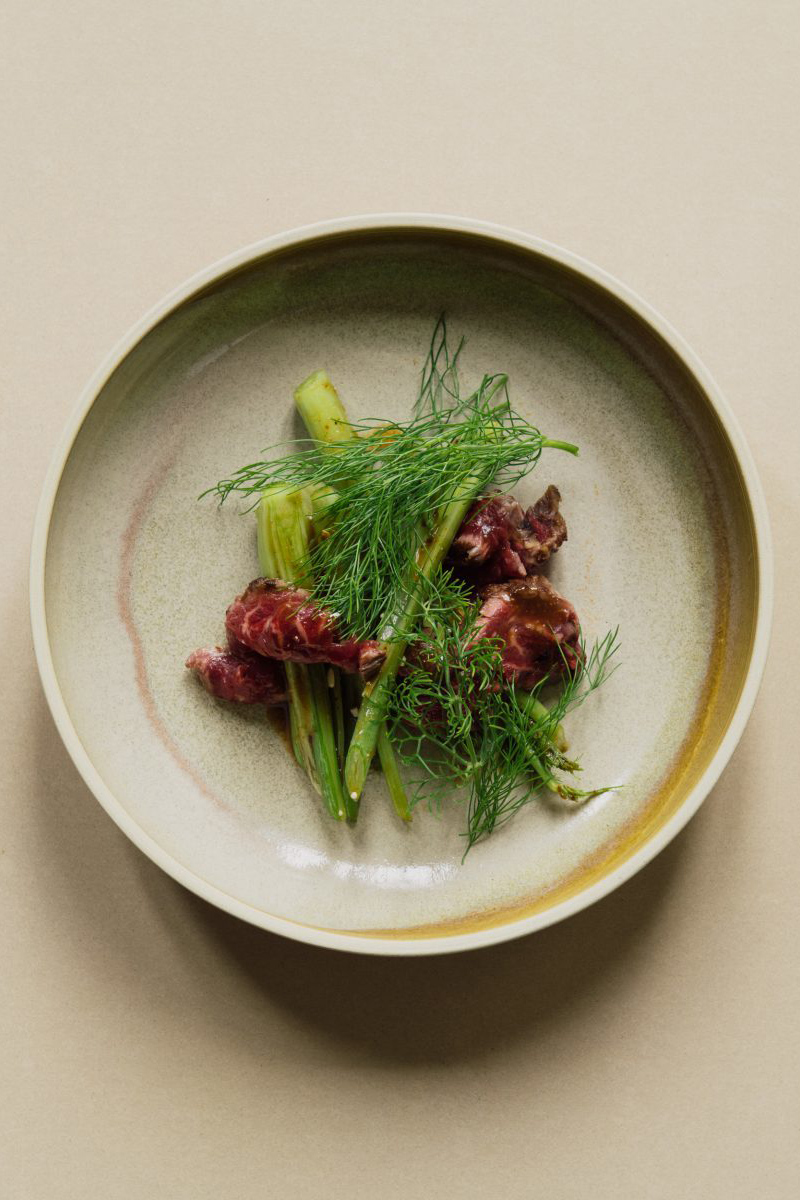
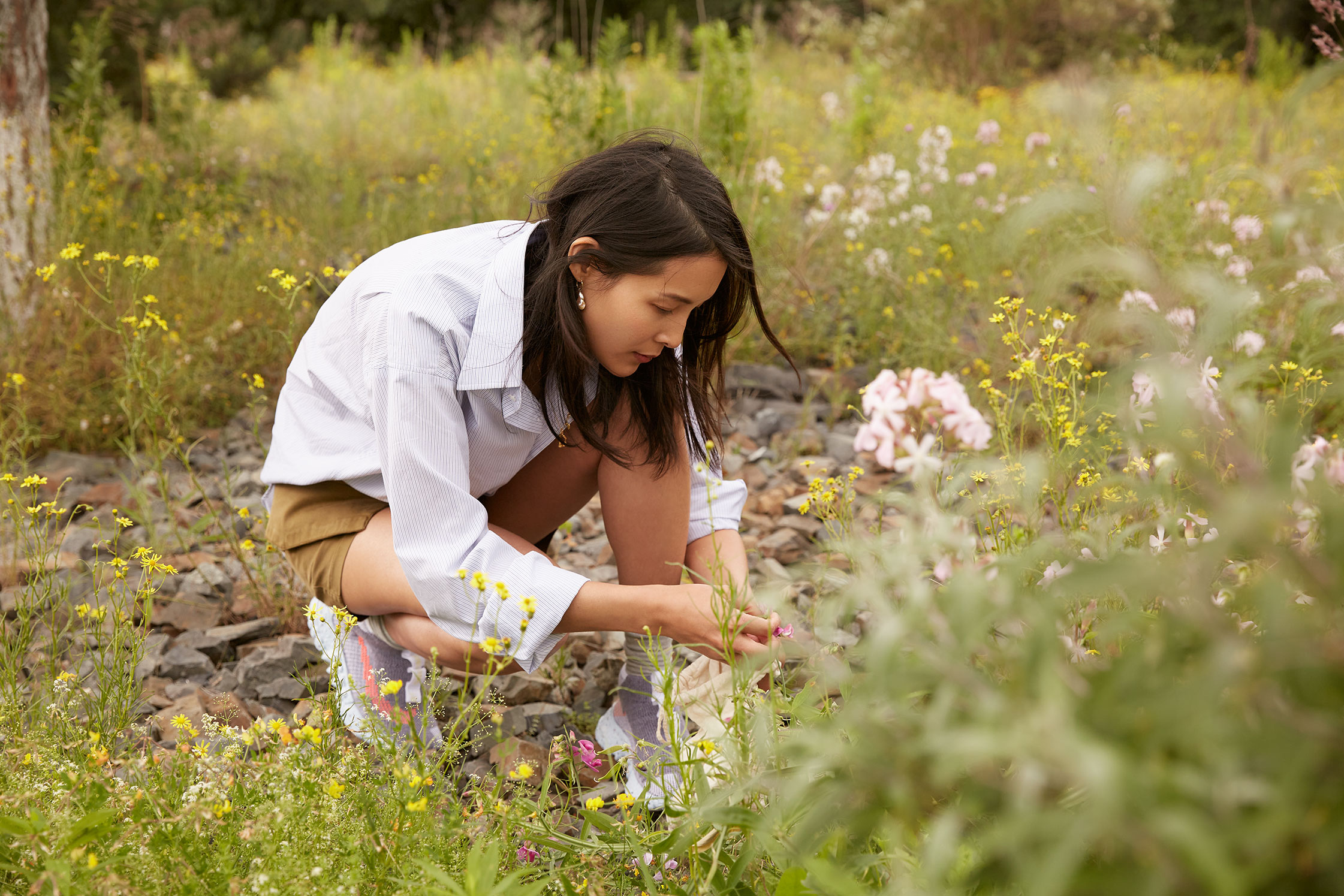
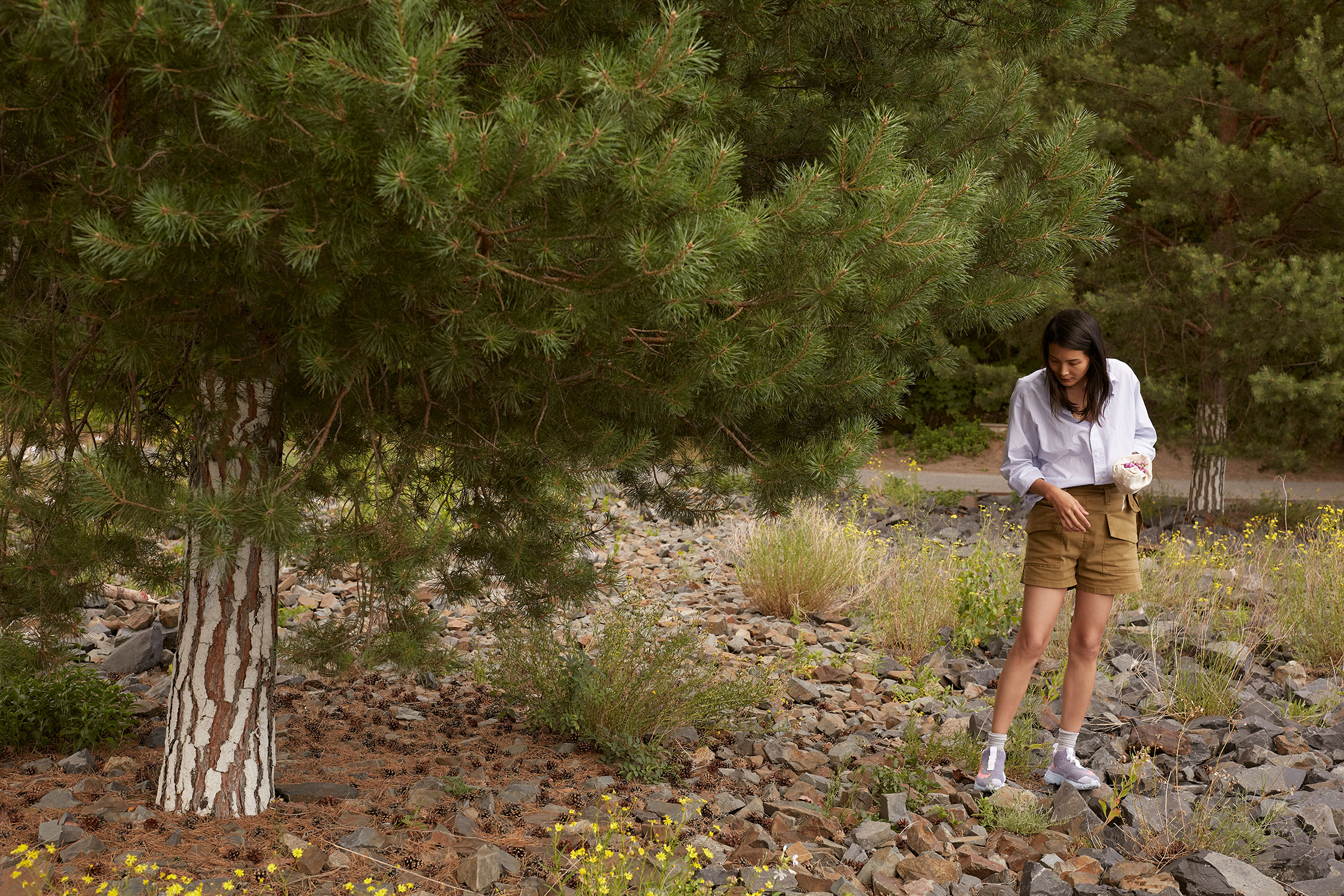
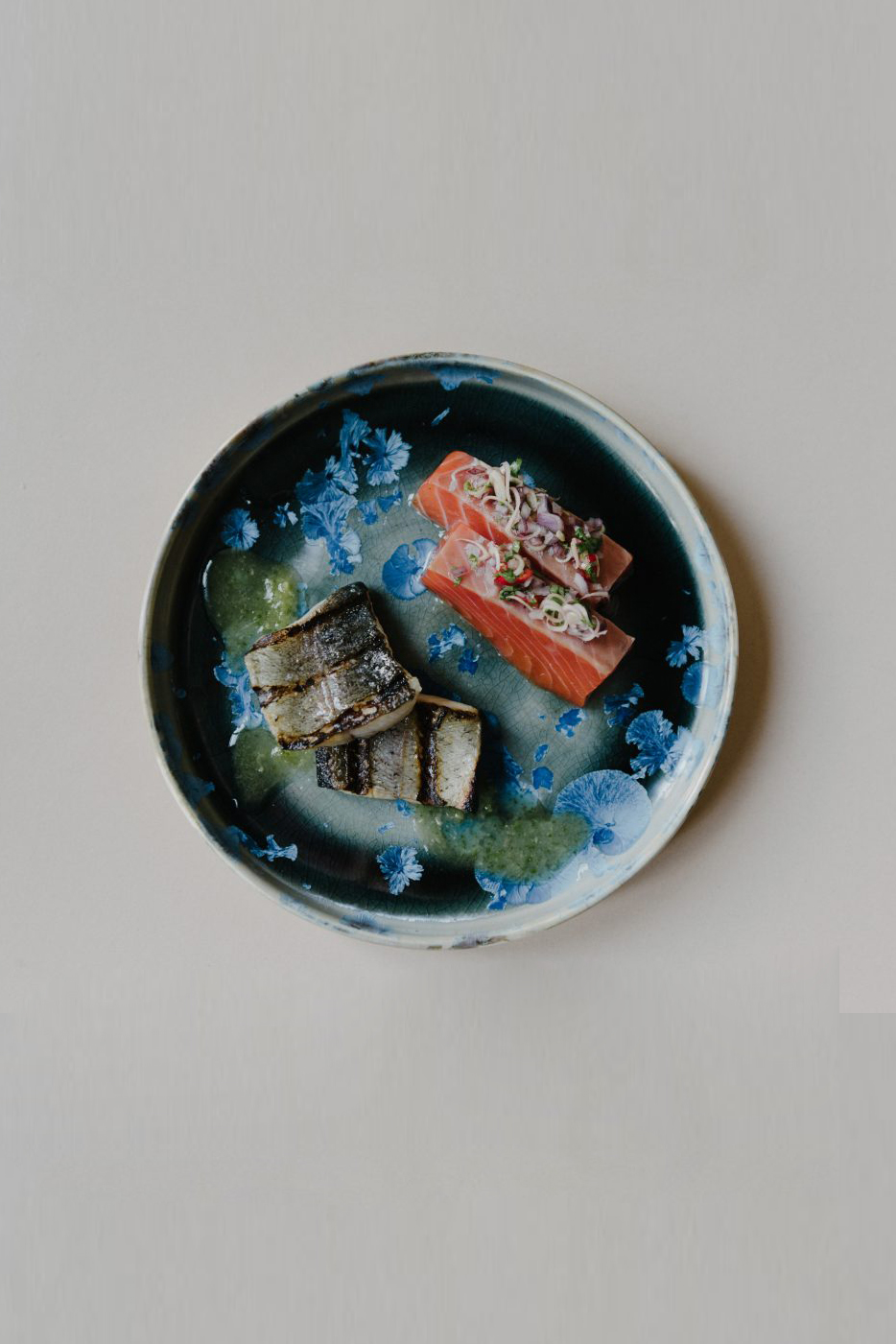
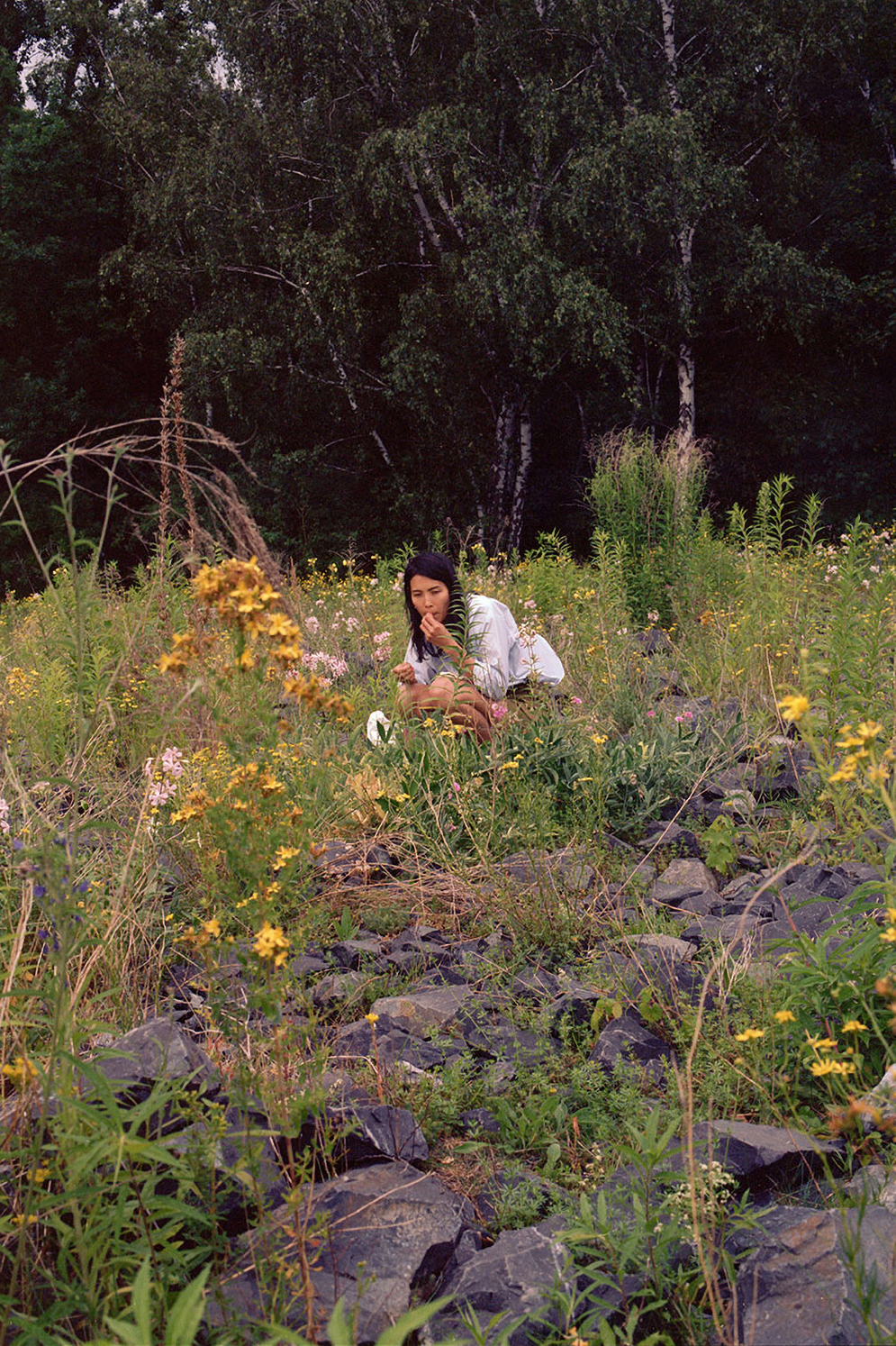
“Oh I found some already!” says Kambhu excitedly, as she heads towards a clump of dainty sweet pea flowers, blossoming against the odds amidst a harsh environment of unstable rocks and stones. Procuring a small tupperware box from her bag, she crouches down to pick the delicate petals, explaining that although they will last a few days, everything she collects will be taken immediately to Kin Dee for use this evening. It’s an extremely idyllic scene, as a cabbage white butterfly flutters past Kambhu’s face, and bees pollinate the flora surrounding her. Noticing that some flowerheads are beginning to decay, she seems genuinely upset. “It’s so sad to see them dying. But that’s the natural circle. They will flourish again next year.”
As well as having a practical purpose, foraging out in nature is a great way for Kambhu to relax away from the demands of running a restaurant. But it’s not the only coping mechanism she’s developed to help her destress after ten hour, physically demanding shifts in the kitchen. “I drink and I sleep, I’m one of those people who could hang out in bed all day,” says Kambhu, laughing and admitting that she’d had a somewhat indulgent night the evening before we met. “I am the most relaxed when having a good meal with my friends, people that I trust and love,” she adds, citing Chungking Noodles and Gazzo pizza restaurant in Kreuzberg as two of her favorite Berlin eateries.
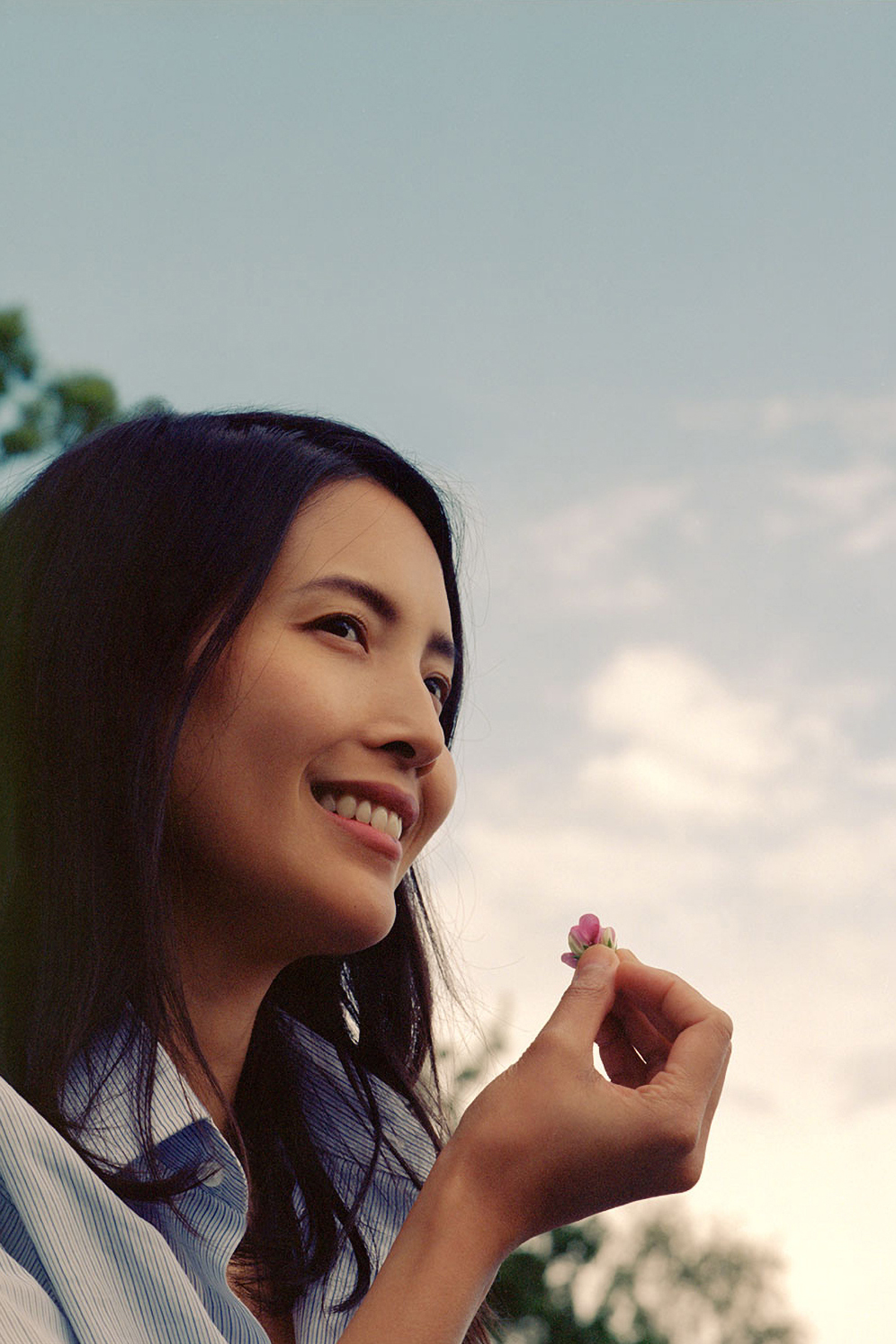
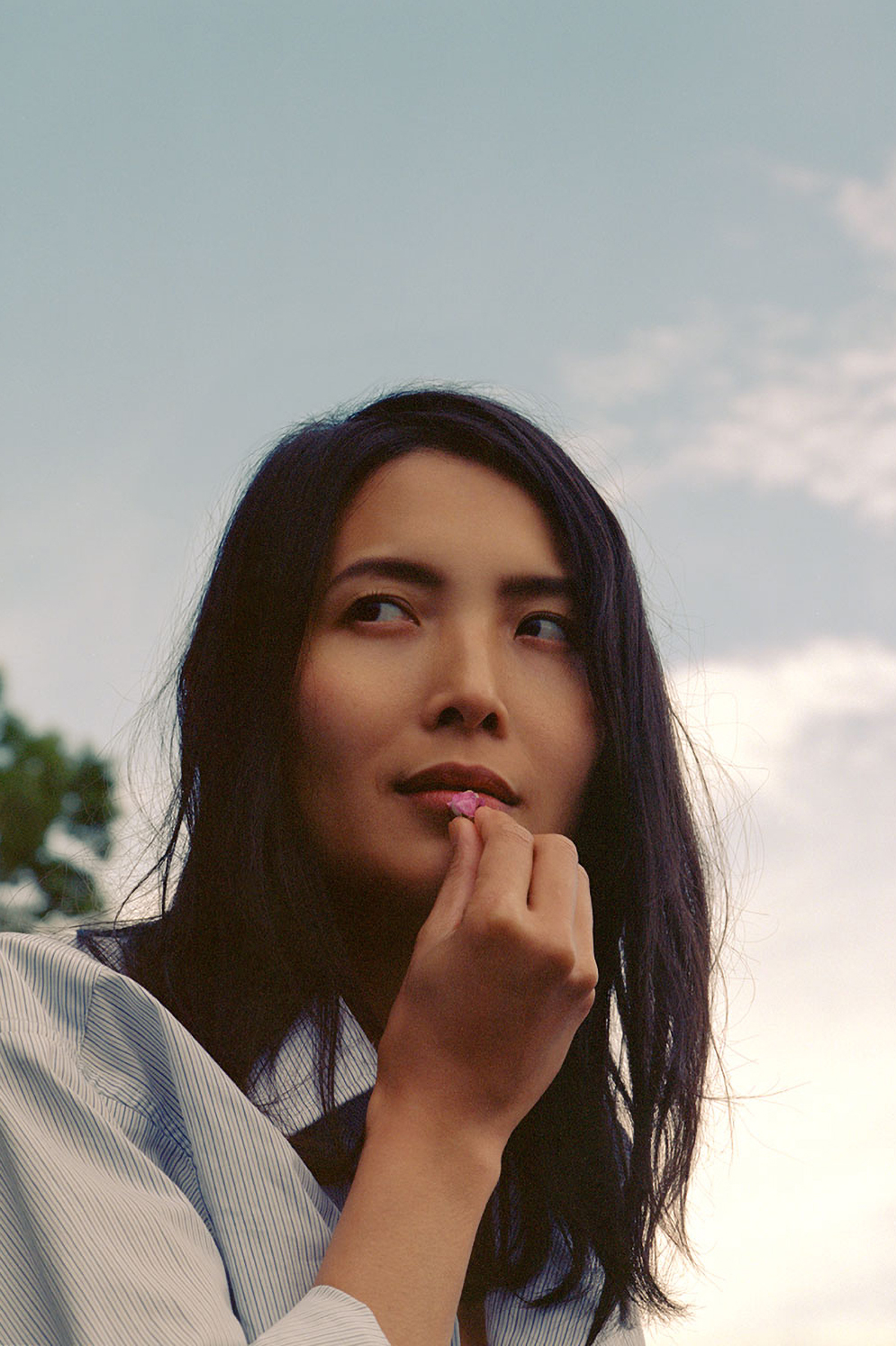
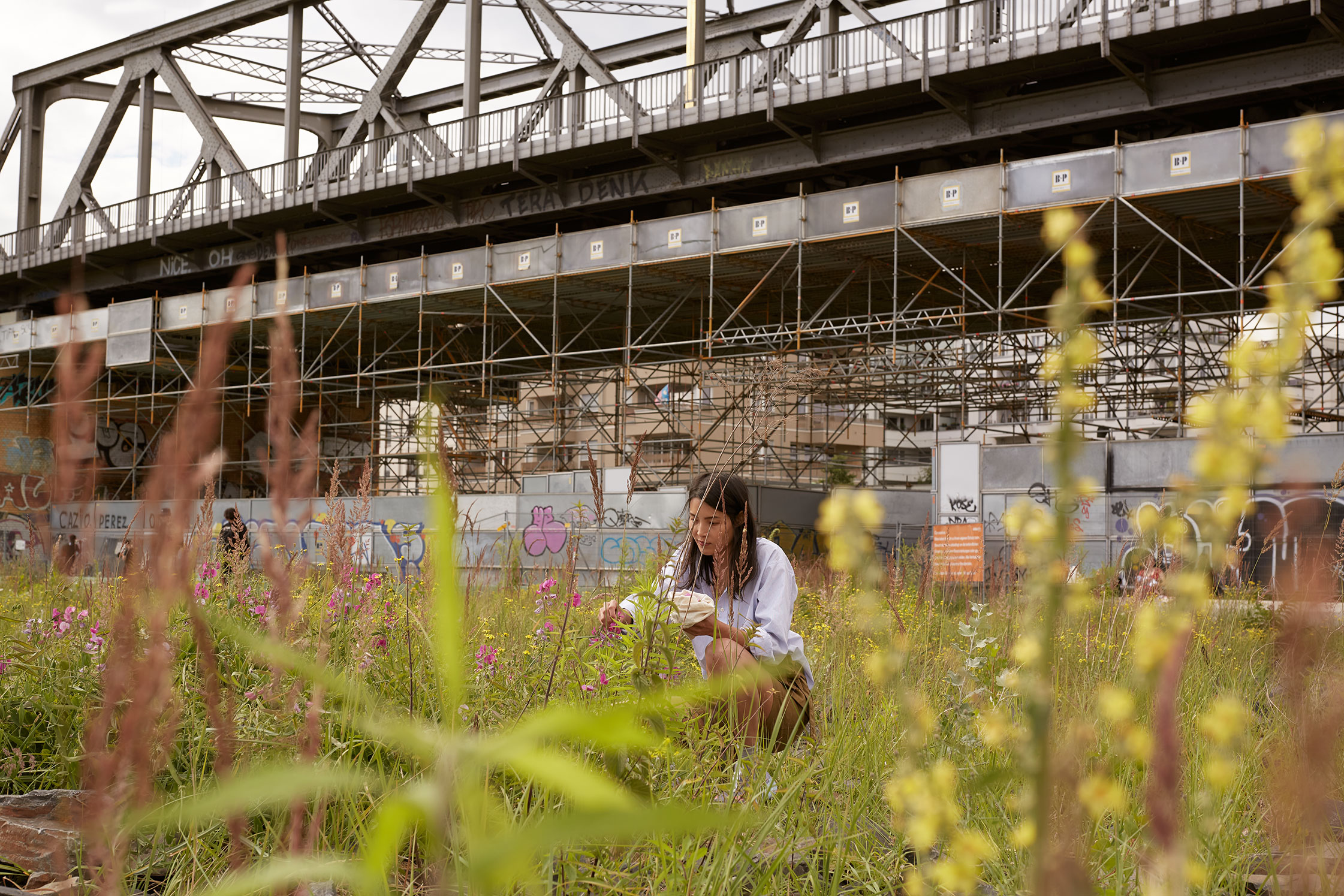

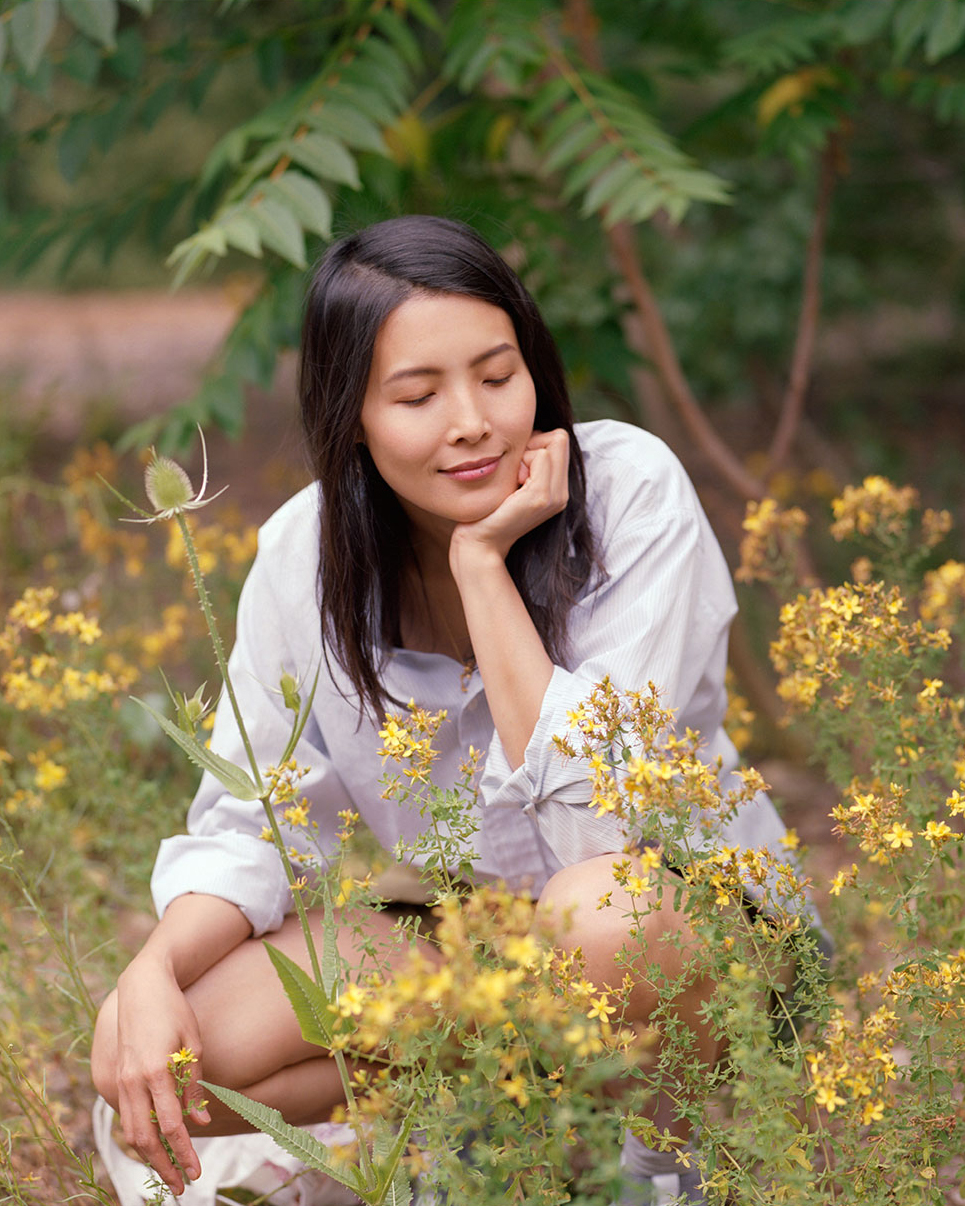
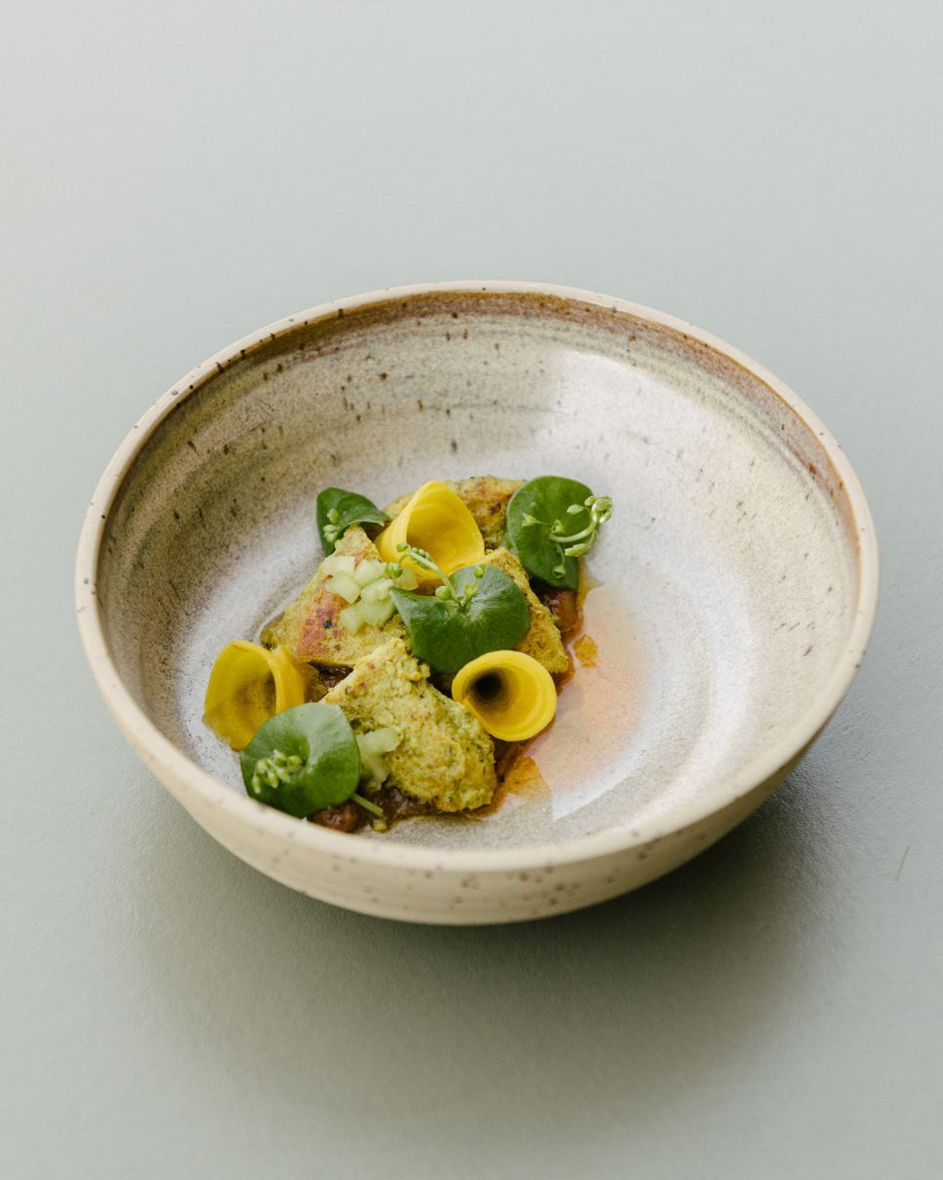
“I’m very lucky to work with a team that knows how to find beauty in natural ingredients and doesn’t try to force them to be something they’re not.”
Aside from socialising, Kambhu enjoys taking regular baths as well as drinking herbal teas and infusions, something she usually does each morning before she even fully opens her eyes. “Some are digestive, some are calming, and some help you sleep,” she explains, adding that one of her favourite flavors is lemongrass. “I don’t really have much knowledge about it yet, but I’m enjoying testing out different things.”
Drinking her tea from a brown ceramic tea set that was made especially for her by a friend, Kambhu even tried her hand at ceramics herself during lockdown, which forced Kin Dee into temporary closure. “It was the first time I’d made anything like this and it was extremely calming and rewarding,” she says, proudly describing the set of three plates that now take pride of place on her dining table. “In a weird way, lockdown forced me to relax. I had been working so intensely and it felt a little unhealthy. Now, for me, I’m mostly just interested in making enough to live. Berlin offers affordable living at a really high quality and the healthcare system here is really good,” says Kambhu, before finally adding, “it’s made me question, why do we all work so hard?”
Dalad Kambhu is the head chef at Berlin-based contemporary Thai restaurant Kin Dee, and one of only ten women in Germany to have been awarded a Michelin star. This interview is part of Let Nature In, a content series produced in collaboration with organic skincare brand Dr. Hauschka. Showcasing inspiring female creatives for whom the beauty of nature is intrinsic to their practice, the series also features portraits on British multi-disciplinary artist Alexandra Daisy Ginsberg and Barcelona-based creative Tana Latorre.
Text: Emily May
Photography: Lea Wormsbach
